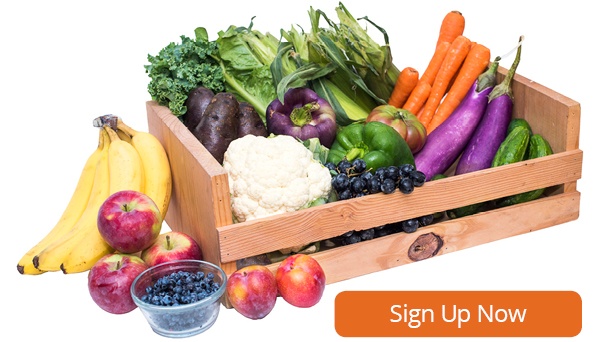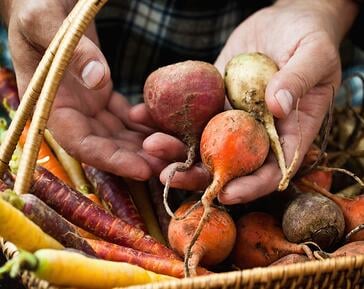
You probably already know more than a dozen reasons why it’s worth paying a little bit more to eat organic food, but there are plenty of folks who say they don't understand why organic produce costs more than conventional produce.
Here’s a little information about the added cost of organic farming to help you understand the difference in price.
1) No Toxic Chemicals = More Labor Costs
When you eat organic lettuce, you’re supporting a method of farming that doesn't use synthetic chemical pesticides, herbicides, and fungicides. Organic farms tend to pay more per acre to produce their crops because they require more labor to deal with weeds and pests in the fields. Not only are YOU consuming less chemical residue, but so too are the farm workers who are continuously exposed to harmful chemicals on industrial farms.
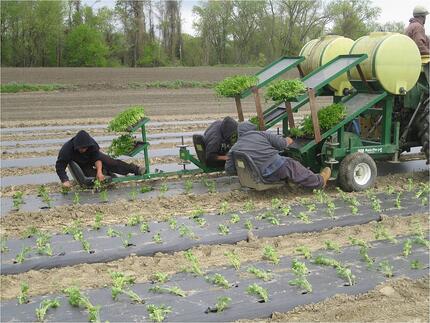
2) Organic Farms Tend to Be Smaller
While organic farming has been successful on an industrial scale, most of our suppliers run small, family-owned farms right here in New England. Without the added benefit of economies of scale, these farmers face higher processing and distribution costs.
That’s where we come in! As an aggregator and a USDA recognized food hub, we help small producers gain entry into larger markets and reach people like you and your family.
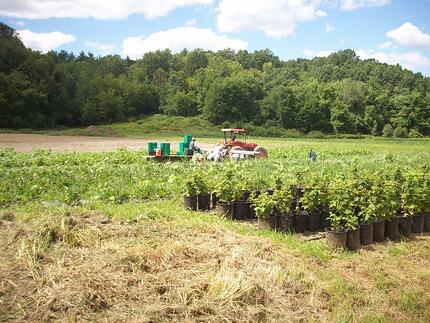
3) Specialty Crop Farmers Don’t Receive Subsidies
Rather than thinking of organic food as more expensive than conventional food, we should consider that the price of conventional food is kept artificially low. Because Congress hasn’t been able to pass a new farm bill, the agricultural subsidy program continues to lower the cost of commodity crops like corn, rice, and wheat.
This system is broken in a number of ways, and it means that specialty crop growers are forced to compete with farmers who benefit from federal price support.
4) Certification and Regulation Costs Money
The word “organic” is a legally defined and protected word. The National Organic Program, implemented in 2002, established very strict standards for what can be sold under the “organic” label and consumers have come to trust this stamp as a result.
Farms must pay an annual inspection/certification fee to label their produce “organic,” and this fee can reach as much as $2,000 per year for a large farm. In addition to their passion for organic farming methods, farmers apply for certification because they can see that the demand for organic food is growing.
According to the USDA, in 2012 the $28.4 billion organic food industry accounted for over 4 percent of total food sales. Because of people like you, this number continues to grow.
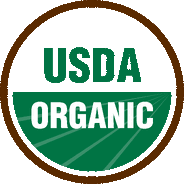
Now you know a few reasons why organic produce tends to be more expensive than conventional produce. But you should also know that we work hard every week to fill your boxes with the freshest organic fruits and vegetables around at a price that you and your family can afford. Our prices are comparable to the organic produce that you’d find in a supermarket, plus you have the added convenience of having your produce delivered to your door!
When you buy your groceries through Boston Organics, you also know that you’re supporting a local company with an environmental conscience that works closely with family farmers throughout New England.
--- --- ---
A special thanks to Albert’s Organics for their initial research on this blog post. They also put together this short video on the definition of organic sustainable farming:


